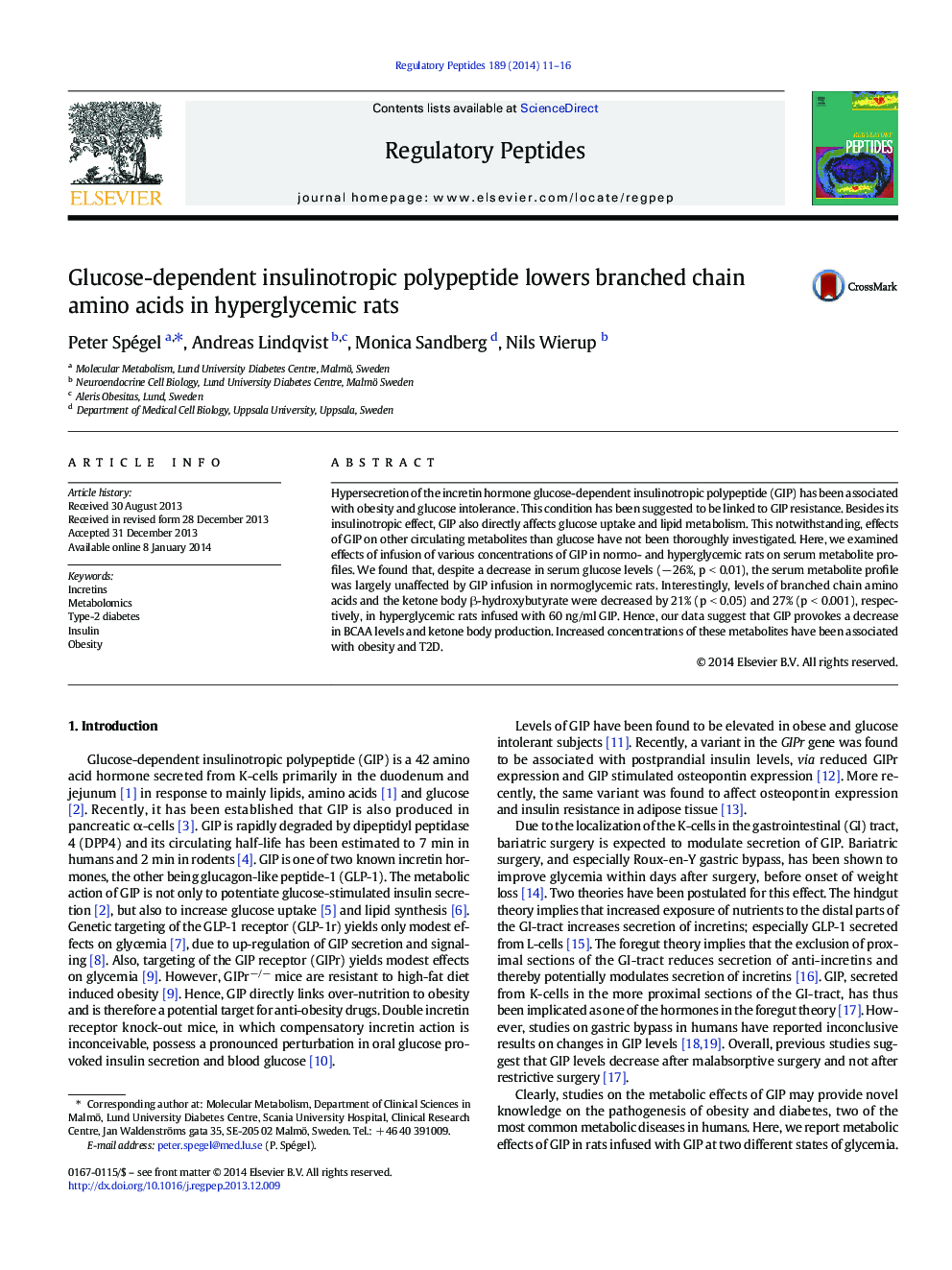| Article ID | Journal | Published Year | Pages | File Type |
|---|---|---|---|---|
| 2022430 | Regulatory Peptides | 2014 | 6 Pages |
•GIP infusion glucose-dependently alters the metabolite profile in rats.•Infusion of GIP lowers levels of several amino acids, including all branched chain amino acids, in hyperglycemic rats.•Levels of ketone bodies are reduced prior to the reduction of fatty acids in hyperglycemic rats infused with GIP.
Hypersecretion of the incretin hormone glucose-dependent insulinotropic polypeptide (GIP) has been associated with obesity and glucose intolerance. This condition has been suggested to be linked to GIP resistance. Besides its insulinotropic effect, GIP also directly affects glucose uptake and lipid metabolism. This notwithstanding, effects of GIP on other circulating metabolites than glucose have not been thoroughly investigated. Here, we examined effects of infusion of various concentrations of GIP in normo- and hyperglycemic rats on serum metabolite profiles. We found that, despite a decrease in serum glucose levels (− 26%, p < 0.01), the serum metabolite profile was largely unaffected by GIP infusion in normoglycemic rats. Interestingly, levels of branched chain amino acids and the ketone body β-hydroxybutyrate were decreased by 21% (p < 0.05) and 27% (p < 0.001), respectively, in hyperglycemic rats infused with 60 ng/ml GIP. Hence, our data suggest that GIP provokes a decrease in BCAA levels and ketone body production. Increased concentrations of these metabolites have been associated with obesity and T2D.
